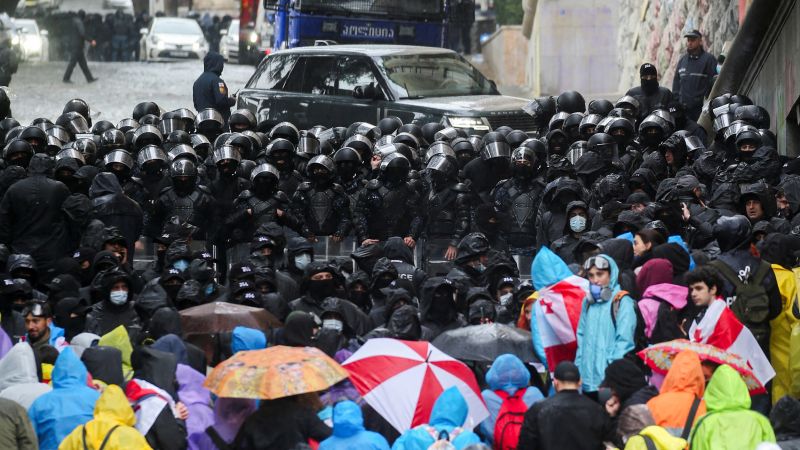The US State Department is implementing a new visa restriction policy in response to a repressive law and crackdowns on protests in Georgia, Secretary of State Antony Blinken announced. The policy targets individuals responsible for undermining democracy in Georgia, as well as their family members, particularly those involved in suppressing civil society and freedom of peaceful assembly through violence or intimidation. The United States will also review its bilateral cooperation with Georgia following the implementation of this policy. This decision comes after Georgian President Salome Zourabichvili vetoed a bill that would require organizations receiving more than 20% of their funding from abroad to register as “agents of foreign influence” or face fines.
The Georgian parliament approved the controversial bill despite widespread opposition in the country. The ruling party, Georgian Dream, who supported the legislation, claimed that it promotes transparency and national sovereignty. However, critics argue that the bill is reminiscent of Russian laws used to stifle opposition and infringe on civil liberties. President Zourabichvili vetoed the bill, emphasizing that it contradicts the country’s constitution and European standards. The European Union has also warned that the bill could jeopardize Georgia’s chances of joining the bloc, as the country applied for EU membership in 2022 and was granted candidate status last year.
The bill has sparked significant resistance both within Georgia and internationally. Thousands of protesters have taken to the streets of the capital to demonstrate against the legislation. The passage of the bill led to clashes between supporters and opponents, with masked officers intervening to control the situation. President Zourabichvili has expressed hope that the upcoming elections in October will provide an opportunity for the population to reverse the bill through democratic means. She emphasized the importance of mobilizing society and political parties to secure a European-oriented future for the country.
The implementation of the visa restriction policy and the controversy surrounding the bill highlight the tensions in Georgia’s political landscape. The US government’s response reflects its commitment to promoting democracy and human rights globally. The move also underscores growing concerns about the erosion of civil liberties and democratic values in Georgia as reflected in the repressive legislation. The international community, including the European Union, has raised alarm about the potential impact of the bill on Georgia’s path towards EU integration and the preservation of democratic norms.
The situation in Georgia underscores the complex interplay between domestic politics, international relations, and democratic values. The clash between the ruling party’s agenda and the opposition’s resistance reflects broader trends of political polarization and authoritarian tendencies. The protests and clashes surrounding the bill exemplify the challenges of safeguarding democratic principles in the face of repressive measures. President Zourabichvili’s call for democratic elections to address the bill highlights the importance of civic engagement and electoral processes in upholding democratic governance.
In conclusion, the developments in Georgia reflect a critical moment in the country’s democratic trajectory and its relationship with the international community. The US State Department’s visa restriction policy and the controversy surrounding the bill underscore the importance of upholding democratic values and human rights. Georgia’s upcoming elections will serve as a pivotal moment for the country to reaffirm its commitment to democratic governance and European integration. As Georgia navigates these challenges, the resilience of its civil society and the engagement of its political actors will be crucial in shaping its democratic future.


